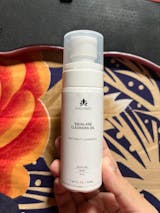WRITTEN BY DHATRI
Arbutin and Vitamin C are the factors to consider when choosing which one should be your main choice. Why do you need it in your skincare routine? How will it help you achieve younger-looking skin as it helps lighten age spots and prevent brown spots from darkening?
Arbutin is a natural substance that can be extracted from the leaves of bearberry, cranberry, and blueberry shrubs. It’s also synthetically produced for use in skincare formulas as an antioxidant and skin lightener, although there is debate about whether these chemicals are a better alternative to the purely natural arbutin found in plants. Studies have shown that both arbutin derived from plant sources and those created by scientists have proven effective at inhibiting the production of melanin pigments.
Vitamin C is one of the best antioxidants you can use. Vitamin C can be applied topically to the skin or mixed with other products by a cosmetic formulator. Vitamin C has powerful, proven benefits for improving your skin’s appearance and health. Vitamin C is the best ingredient in reducing inflammation, rashes, redness, irritation, etc. It also helps in enhancing collagen production and makes skin more youthful and elastic. To quench the thirst of our skin, vitamin C is the best. It makes the skin glow and radiant. One other important benefit of vitamin C is that it helps in lightening hyperpigmentation.
Which is best? Arbutin or Vitamin C?
Both arbutin and vitamin c are the best skincare ingredients in their places. But, still, here we have to select the best one. So here is the answer. Arbutin is the best as compared to vitamin c because it has fewer side effects and more benefits like reducing dark spots, age spots, ageing, etc. Arbutin gives quicker results than vitamin C. Arbutin acts as hydroquinone, which means it has depigmenting factors. Vitamin C is not easily absorbed into the skin, whereas arbutin absorbs quickly into the skin. That's why arbutin is the best ingredient to include in your skincare routine.
How To Use Arbutin And Vitamin C Together?
Even though arbutin is the best ingredient as compared to vitamin c, it gives us magical results if used together. Vitamin C can be applied during the day and arbutin can be used twice a day after deep cleaning your skin with a mild face wash. Or if you are still confused about its application, do consult your dermatologist.
Benefits of Using Arbutin and Vitamin C-
Arbutin-
- helps in reducing melanin production.
- It decreases the appearance of sunburn, tanning, and dark spots.
- Acne scars and marks can be reduced.
- Aids in skin complexion balancing
- It helps in reducing brown spots, sun spots, age spots, etc.
- lightens darker areas on the skin.
- It repairs uneven skin tone.
Vitamin C-
- It prevents the signs of early ageing.
- Work as an antioxidant
- evens out skin tone
- It works well for oily and acne-prone skin.
- It fights with free radicals.
- Soothes skin damaged by the sun.
- Boosts skin hydration.
- Enhances skin texture.
- It acts as a mild sunscreen.
Are There Any Drawbacks to Using Arbutin and Vitamin C Together?
Although both the ingredients have skin benefits, they have side effects as well. They are as follows:
It will be OK if arbutin is used at a 3-4% concentration. Normally, arbutin suits all skin types. But in rare cases, it may cause side effects. A few side effects are:
- Skin irritation and itching
- Redness
- Sun sensitivity
Some people noticed the same side effects while using vitamin c.
Just don't think much about its side effects as it has more skin benefits than side effects. You may check out Suganda skincare products which are highly potent with arbutin and vitamin C ingredients. Have a look.
10% Vitamin C and 2% Arbutin Serum-
This serum is best suited for hyperpigmentation, uneven skin tone, and dark spots. It has double brightening power. It helps in fading discoloration and dark spots. It inhibits melanin production.
Application: Take 2-3 drops daily before or after applying moisturizer. It can be used twice a day.
SOURCES:
“Arbutin as a Skin Depigmenting Agent with Antimelanogenic and Antioxidant Properties - PMC.” PubMed Central (PMC), www.ncbi.nlm.nih.gov, 1 July 2021, https://www.ncbi.nlm.nih.gov/pmc/articles/PMC8301119/.
@ResearchGate. “(PDF) Effects of Kojic Acid, Arbutin and Vitamin C on Cell Viability and Melanin Synthesis i“Cosmeceuticals for Hyperpigmentation: What Is Available? - PMC.” PubMed Central (PMC), www.ncbi.nlm.nih.gov, 1 Mar. 2013, https://www.ncbi.nlm.nih.gov/pmc/articles/PMC3663177/.
n B16BL6 Cells.” ResearchGate, researchgate.net, researchgate.net/publication/264180173_Effects_of_Kojic_acid_Arbutin_and_Vitamin_C_on_cell_viability_and_melanin_synthesis_in_B16BL6_cells. Accessed 7 May 2022.







 +91 9347578980
+91 9347578980